Bermain slot online semakin diminati oleh para penggemar permainan judi. Salah satu yang paling menarik adalah slot 5000, sebuah permainan yang menghadirkan keseruan dan peluang besar untuk meraih kemenangan. Dengan taruhan tinggi, pengalaman bermain menjadi lebih mendebarkan, terutama bagi mereka yang mencari sensasi dan hadiah maksimal. Slot gacor dan slot online gacor menjadi istilah yang sering dicari karena menjanjikan potensi kemenangan yang lebih tinggi dibandingkan permainan slot biasa.
Dalam dunia slot online, slot demo menjadi salah satu cara bagi pemain untuk mengenal permainan sebelum bertaruh dengan uang sungguhan. Melalui demo slot online, pemain bisa merasakan fitur-fitur permainan dan strategi yang tepat. Tak ketinggalan, kecanggihan teknologi memungkinkan akses melalui link slot online dan link slot qris, memudahkan transaksi deposit dan penarikan. Mari kita eksplor lebih dalam tentang keasyikan dan peluang yang ditawarkan oleh slot 5000 dan berbagai jenis slot gacor yang ada di luar sana.
Mengenal Slot 5000 dan Taruhan Tinggi
Slot 5000 merupakan salah satu jenis permainan slot online yang menarik perhatian banyak pemain dengan taruhan tinggi. Dengan kapitalisasi yang bisa mencapai angka besar, permainan ini memberikan peluang untuk meraih kemenangan yang menggiurkan. slot qris Dalam dunia slot gacor, Slot 5000 menjadi pilihan utama bagi mereka yang mencari sensasi dan tantangan, terutama dalam bermain dengan jumlah taruhan yang signifikan.
Keunggulan dari Slot 5000 terletak pada variasi permainannya yang beragam dan fitur-fitur bonus yang menarik. Pemain bisa mencoba slot demo untuk memahami mekanisme permainan sebelum memutuskan untuk bertaruh dengan uang sungguhan. Dengan akses mudah melalui link slot gacor hari ini, pemain dapat menjajaki berbagai pilihan tanpa harus kesulitan mencari tempat yang terpercaya untuk bermain.
Taruhan tinggi pada Slot 5000 juga seringkali diimbangi dengan peluang menang yang lebih besar. Ini menjadi daya tarik tersendiri bagi para penggemar slot online gacor. Dengan slot depo qris, pemain dapat melakukan transaksi dengan cara yang lebih praktis, sehingga memberikan pengalaman bermain yang lebih menyenangkan dan menguntungkan.
Panduan Slot Gacor dan Slot Demo
Slot gacor adalah istilah yang sering digunakan oleh pemain untuk menggambarkan mesin slot yang memberikan kemenangan besar dalam waktu singkat. Banyak pemain mencari slot gacor hari ini untuk memaksimalkan peluang mereka dalam bermain. Dengan mencari link slot gacor, pemain dapat menemukan mesin yang sedang dalam kondisi baik dan memiliki peluang lebih tinggi untuk menang. Pastikan untuk memeriksa ulasan dan rekomendasi dari pemain lain untuk menemukan slot gacor yang terbaik.
Selain itu, slot demo juga merupakan cara yang baik untuk berkenalan dengan berbagai jenis permainan sebelum melakukan taruhan sebenarnya. Dengan akses ke demo slot online, pemain dapat mencoba berbagai fitur dan mekanisme permainan tanpa perlu mengeluarkan uang. Ini sangat bermanfaat bagi pemula yang ingin belajar cara bermain atau bagi mereka yang ingin menguji strategi baru. Slot demo membantu menciptakan pengalaman bermain yang lebih percaya diri ketika akhirnya beralih ke permainan dengan taruhan tinggi.
Saat mencari slot online, penting untuk mengetahui opsi yang tersedia dan bagaimana cara mengaksesnya. Link slot online yang tepat dapat memperlancar pengalaman bermain dan memungkinkan akses mudah ke mesin dengan potensi besar. Dalam konteks ini, slot 5000 dan slot maxwin adalah pilihan menarik bagi pemain yang mencari kemenangan besar. Dengan pemahaman yang tepat tentang slot gacor dan slot demo, pemain dapat meningkatkan peluang mereka untuk sukses di dunia slot online.
Strategi Manfaatkan Link Slot Gacor
Salah satu langkah penting dalam bermain slot online adalah memanfaatkan link slot gacor. Link ini memberikan akses ke permainan yang memiliki peluang kemenangan lebih tinggi. Dengan memilih link yang tepat, Anda bisa meningkatkan pengalaman bermain serta mendapatkan bonus yang lebih menguntungkan. Untuk itu, penting untuk selalu memantau informasi terbaru mengenai link slot gacor hari ini yang dapat mendukung strategi permainan Anda.
Selain itu, bermain di link slot online yang terpercaya juga bisa membantu meminimalisasi risiko. Pastikan untuk memilih situs yang telah memiliki reputasi baik dan menyediakan demo slot online. Dengan adanya fitur ini, Anda bisa mencoba berbagai jenis permainan tanpa risiko kehilangan uang. Hal ini memberikan kesempatan untuk belajar dan menemukan slot maxwin yang sesuai dengan gaya permainan Anda.
Terakhir, jangan ragu untuk menggunakan slot depo qris sebagai metode transaksi. Metode ini menawarkan kemudahan dalam melakukan deposit dan menarik dana. Saat memilih slot qris gacor, selalu periksa pembayaran dan keuntungan yang diberikan. Dengan memanfaatkan semua aspek ini, Anda dapat meraih kemenangan lebih mudah dan menikmati keseruan bermain slot dengan taruhan tinggi.
Keseruan dan Kemenangan di Slot Online
Bermain slot online menawarkan pengalaman yang mengasyikkan bagi para pemain, terutama dengan taruhan tinggi yang dapat memberikan keuntungan yang signifikan. Dalam dunia slot gacor, pemain dapat menemukan permainan yang dikenal memberikan banyak kemenangan. Keseruan meningkat ketika pemain melihat simbol-simbol yang turun dengan baik, menciptakan kombinasi yang menguntungkan dan memberikan sensasi luar biasa. Dengan berbagai tema dan fitur inovatif, slot online menjadi pilihan favorit bagi banyak orang.
Salah satu aspek menarik dari slot online adalah adanya demo slot yang memungkinkan pemain untuk mencoba permainan tanpa risiko kehilangan uang. Ini sangat berguna bagi pemula yang ingin memahami cara kerja slot sebelum melakukan deposit dengan uang asli. Dengan akses ke demo slot online, setiap orang bisa merasakan keseruan dan belajar strategi yang tepat dalam bermain untuk meraih slot maxwin. Ini memberikan kepercayaan diri pada saat berpindah ke taruhan yang lebih tinggi.
Selain itu, pemain juga dapat memanfaatkan link slot gacor untuk menemukan permainan yang sedang hot dan memberi banyak jackpot. Dengan mengikuti link slot gacor hari ini, pemain bisa mendapatkan informasi terkini tentang permainan mana yang menawarkan peluang menang terbaik. Dalam ekosistem yang berkembang pesat ini, slot 5000 menjadi salah satu pilihan bagi mereka yang ingin merasakan adrenalina dengan taruhan tinggi dan kesempatan untuk meraih kemenangan besar.


